Benedict, the ‘other pope,’ dies at 95, leaving behind a unique and complex legacy
News Story By Claire Giangravé | Religion News Service
VATICAN CITY — Pope Emeritus Benedict XVI, who will be remembered for being the first head of the Roman Catholic Church to resign in 600 years, died on Saturday (Dec. 31) at his home at the Vatican.
The retired pontiff’s health started to decline during the Christmas season and Pope Francis called faithful to pray for his “very sick” predecessor on Wednesday. He was 95.
The emeritus pope’s body will be brought to St. Peter’s Basilica on January 2, the Vatican announced on Saturday. Francis will preside at a simple and sober funeral on Thursday.
Before he was elected by his fellow cardinals in 2005 to become the first German pope, Benedict had already left an indelible mark in Catholic theology and thinking as the prefect of the Congregation for the Doctrine of the Faith under his predecessor, Pope John Paul II. His rigorous, usually conservative interpretations of church teaching and discipline earned him the nickname “God’s Rottweiler,” in stark contrast with the shy, introspective and art-loving man depicted by his friends.
His death put an end to the complexities of having two popes reside in the Vatican. This is the first time in the modern era that a pope has died while another is in power, leaving aside the need for a conclave of cardinals to elect his successor.
Benedict XVI spent the last years of his life in relative isolation at the Vatican, living in a monastery within the city-state’s walls, surrounded by a handful of aides and supporters. He made only made a few public appearances with Pope Francis.
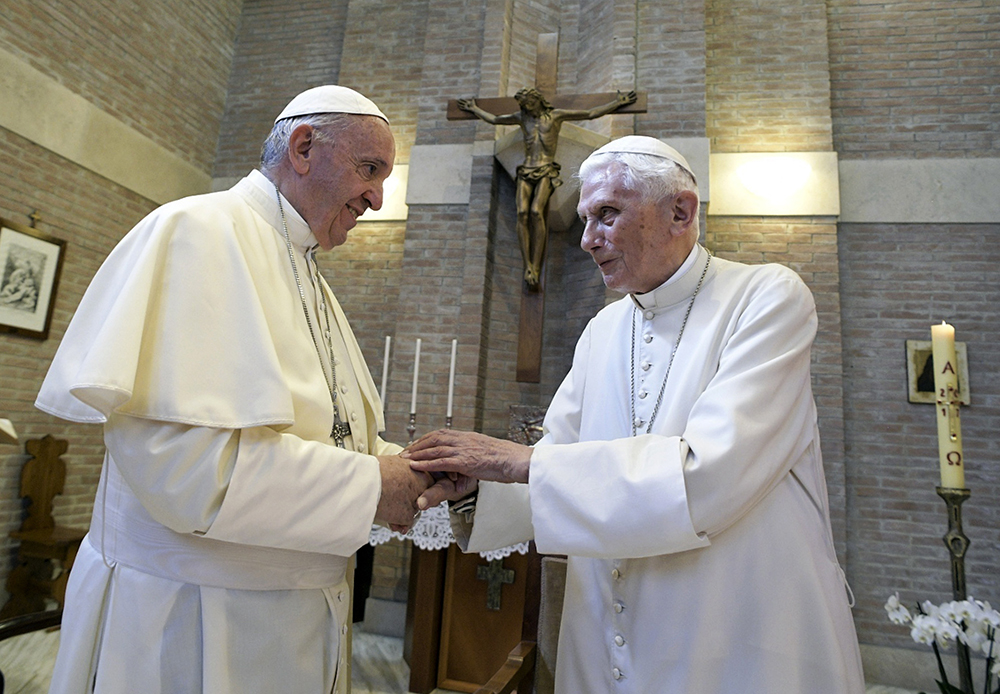
When Cardinal Josef Ratzinger emerged as Pope Benedict XVI in the conclave of 2005, he was faced with the challenge of following the charismatic John Paul II, whose influence went beyond the Catholic Church in a nearly three-decade-long pontificate.
John Paul was credited with a role in the defeat of communism and the fall of the Iron Curtain. Through his massive popularity and his experience in the persecuted church in Poland, he fueled a deep conservatism in the Catholic Church, ready to fight against the perceived dangers of communism and the looming larger threat of secularism.
Benedict was seen as a continuation of this conservative push against secularization, but with a scholarly bent. His choice of the name Benedict signaled in particular his desire to awaken the faith in the church’s ancient home in Europe, according to the Rev. Maurice Ashley Agbaw-Ebai, a theologian and author of “Light of Reason, Light of Faith, Joseph Ratzinger and the German Enlightenment.”
“For someone with a symbolic sense and temperament, Ratzinger’s choice of the name ‘Benedict’ was programmatic: the desire to re-engage Europe and the West with a proposal of the Gospel message of Jesus Christ,” said Ashley Agbaw-Ebai in an email to Religion News Service.
“Benedict believed that reason and love can serve as a better foundation for the freedom that the West seeks and desires,” he added.
Early on in his pontificate, Pope Benedict XVI began the beatification process for John Paul, waiving the traditional five-year waiting period. Half of Benedict’s first encyclical, an official papal document called “Deus Caritas Est,” was written using the incomplete writings of John Paul.
Benedict also paid tribute to his predecessor after being elected pope in 2005.
“Dear brothers and sisters, after the great Pope John Paul II, the Cardinals have elected me, a simple, humble laborer in the vineyard of the Lord,” he said. “The fact that the Lord knows how to work and to act even with insufficient instruments comforts me, and above all, I entrust myself to your prayers.”
Born April 16, 1927, Benedict was ordained a priest in 1951 in his native Bavaria, Germany, and soon entered a circle of influential Catholic theologians of the 20th century such as Hans Urs von Balthasar and Henri de Lubac.
Initially he was drawn to the progressive theological currents of the Nouvelle Théologie that ushered in new ideas for the reform of the church.
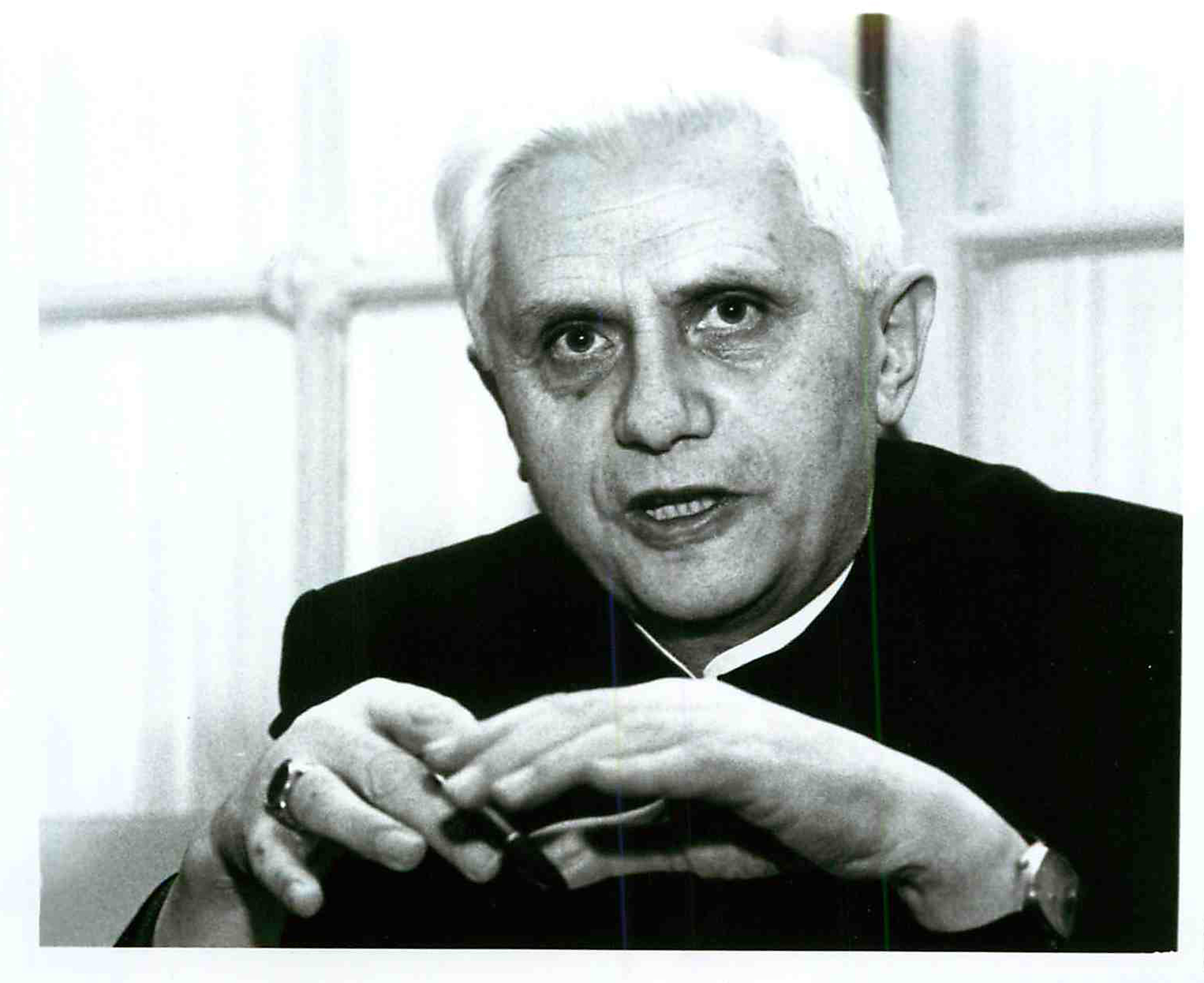
He participated in the Second Vatican Council, which was called by Pope John XXIII to reform the church, working as a theological adviser to German Cardinal Josef Richard Frings, who advocated on behalf of the Jewish people during the Nazi regime, which Ratzinger had also experienced as a youth.
The suit-wearing young Ratzinger was considered a reformer at the time, working closely with some of the most progressive theologians present at the council.
The sexual and cultural revolution of 1968 put an end to Ratzinger’s progressive leanings, and his views became more conservative.
After being appointed bishop of Munich and Freising in 1977 — and made cardinal the same year — he went to the Vatican in 1981 to take over the role of prefect of the Congregation for the Doctrine of the Faith (now the Discastery for the Doctrine of the Faith), charged with addressing important theological and doctrinal matters of the Catholic Church.
The bookish Ratzinger was reluctant to take on the high-profile position, and John Paul had to ask several times before Ratzinger accepted. Even after going to Rome, he asked to be dismissed by the pope in order to work in the Vatican Library, but was denied.
His brief time as bishop in Munich came to haunt him years later, when a report in January 2022 accused him of covering up abuse by priests. Benedict denied any wrongdoing while condemning sexual abuse and coverup in open letters.
As prefect, Ratzinger upheld traditional Catholic views on life issues, sexuality and homosexuality. He approved rules prohibiting men with “deep-seated homosexual tendencies” from entering the priesthood. He was also responsible for overseeing charges of sexual abuse by clergy, which fell under his jurisdiction.
After the Boston Globe reported that scores of priests had abused children, prompting headlines worldwide in 2002, he issued a letter titled De Delicti Gravioribus (On More Serious Crimes), which certain Vatican documents confidential, including those concerning sexual abuse.
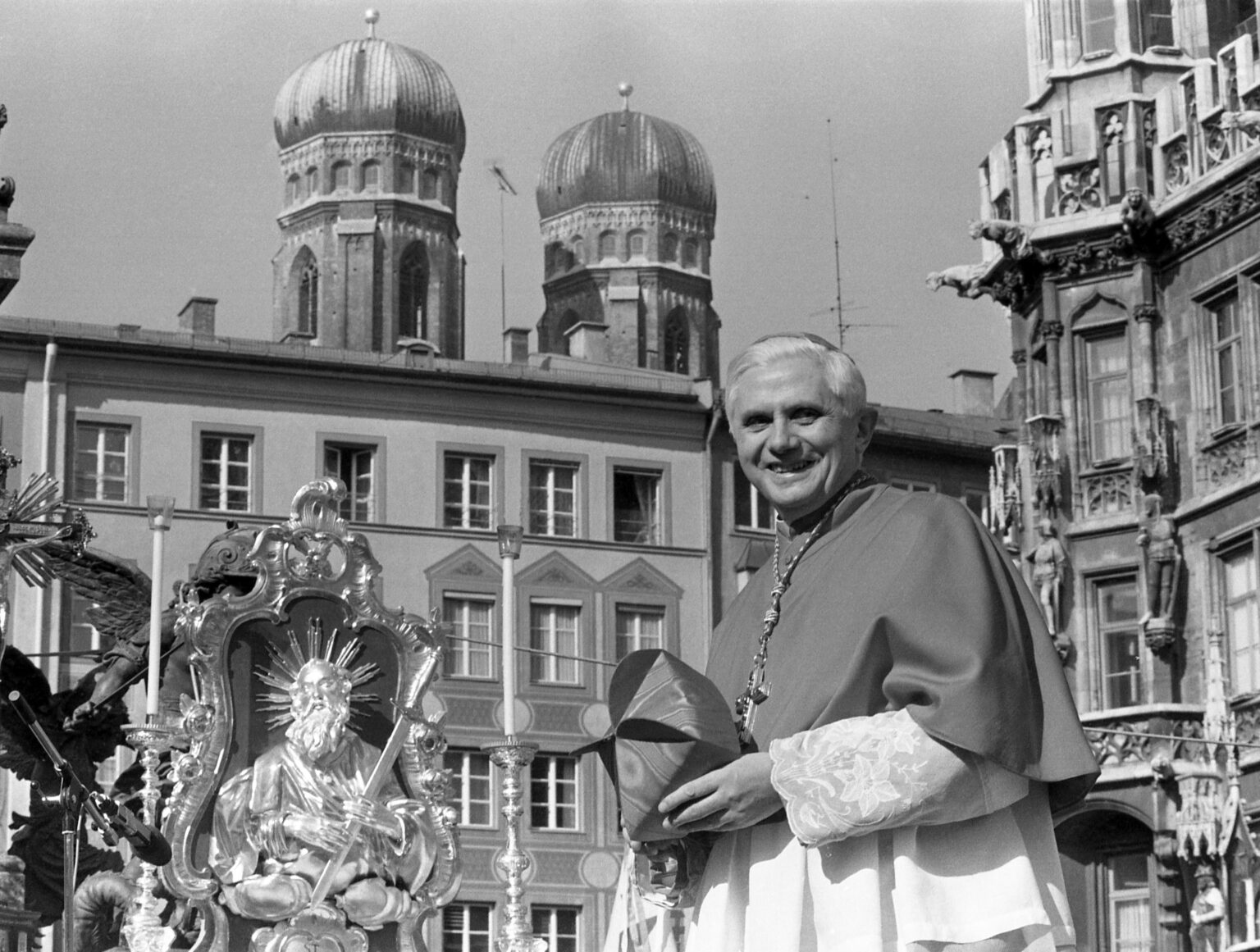
The letter was later criticized for “obstructing justice” in clergy abuse cases in the United States. In 2005, Benedict was named in a Texas lawsuit involving a seminarian accused of abuse. Government officials in the United States argued that he should be given immunity.
But while at the CDF, Ratzinger launched the Vatican’s first efforts to combat clergy abuse and extended canon law to address child pornography, raising the possibility of waiving the statute of limitations and speeding up the procedure to laicize guilty priests.
Once elected pope, Benedict launched an investigation into the Legion of Christ and its founder, ex-priest and pedophile Marcial Maciel, whom he later laicized and retired to a “life of penitence and prayer.”
Benedict visited fewer countries than his globe-trotting predecessor, but his trips to the U.S., Australia, Africa and the Middle East attracted huge crowds. He would often use art as a bridge to foster dialogue with the countries and communities he visited.
“In his two visits to Africa and in his post-synodal exhortation Africae Munus, Benedict shows a clear admiration of the cultural values of Africa,” said Ashley Agbaw-Ebai. “From an African perspective, Benedict’s papacy could be read as a papacy of culture and spirituality, a Christo-centric and Eucharistic spirituality that demands breaking down barriers of tribe and fostering love and reconciliation in Africa.”
Benedict would sometimes refer to Africa as the “lung of the church” due to its strong spirituality, high number of vocations and young population. He appointed several Africans to hold Vatican positions and strengthened ties between African countries and Rome.
“Benedict was a teacher, and for the wider church I think his pontificate represented a back-to-the-basics course in Christianity,” said John Thavis, an American journalist and author of “The Vatican Diaries.”
“After more than a quarter-century of outreach under John Paul II, the church under Benedict looked inward — at what it believes and what it teaches,” said Thavis. “I think Benedict thought that before engaging the world, Christians needed a clearer understanding of their own faith.”
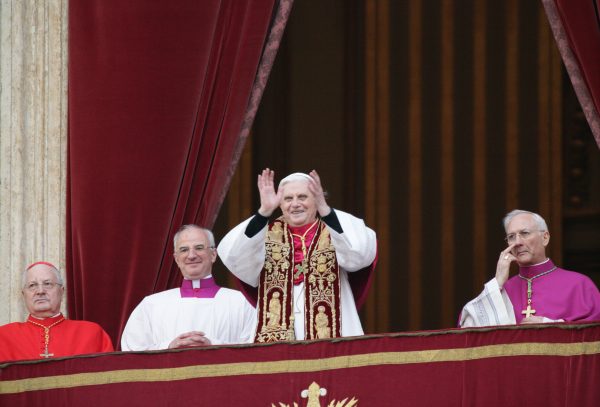
Where Benedict succeeded in fostering ecumenical dialogue with Protestant and Orthodox denominations, he failed to promote interreligious dialogue with Muslims and Jews.
In September 2006, Benedict angered Muslims when he gave a controversial speech at his former university in Regensburg, Germany, quoting a 14th-century emperor who said Islam’s Prophet Muhammad had brought only “evil and inhuman” things.
Benedict’s decision in 2007 to allow the celebration of the Tridentine Mass drew backlash from Jewish groups who objected to the anti-Semitic language used in the rite.
In 2009, Benedict apologized for lifting the excommunication of Bishop Richard Williamson, a Holocaust-denying traditionalist from England who was ordained illegitimately by the controversial French Archbishop Marcel Lefebvre in 1988.
As pontiff, Benedict was also unsuccessful in cleaning up the disorganized and scandal-ridden offices at the Vatican. According to the Rev. Thomas Reese, author of “Inside the Vatican” and an RNS columnist, Benedict’s “public failures were caused by his not consulting a wider range of advisors.”
The Vatileaks scandal, which broke in 2012, brought to light letters and other documents outlining corruption and a lack of financial transparency in church’s administration, and revealed a pope increasingly overwhelmed by factionalism and political gamesmanship within the Vatican.
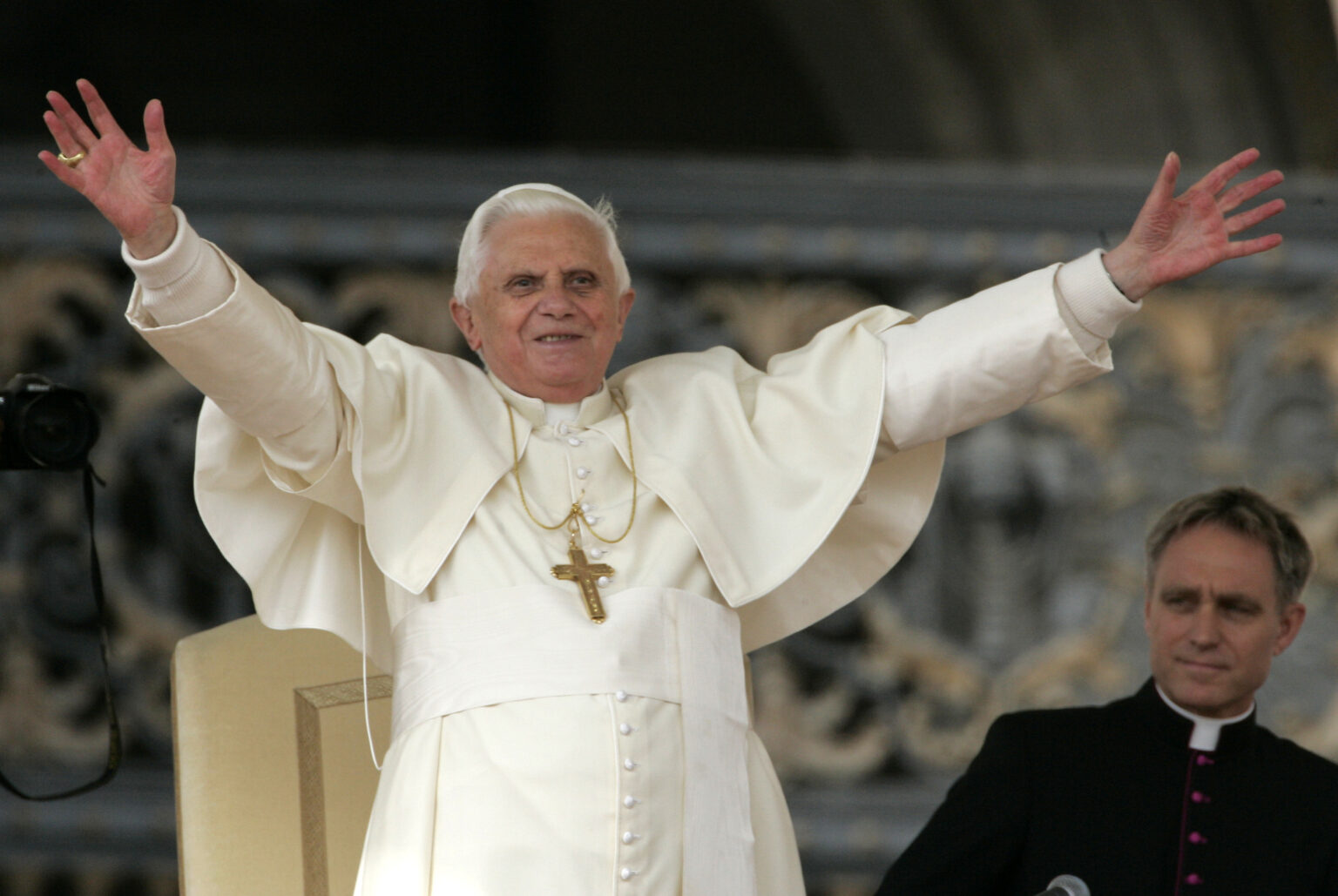
On Feb. 11, 2013, Benedict announced his resignation in a speech to the cardinals in Latin citing a “lack of strength of mind and body.” He took on the title of pope emeritus and continued to live in a secluded alcove at the Monastery of Mater Ecclesiae at the Vatican. He spent his last days writing and playing the piano in the company of his beloved multicolored tabby cat.
A pope straddling past and present, he paved the way forward for the church in the new millennium, laying the groundwork for addressing sexual abuse and even, more prosaically, creating the first papal Twitter account.
But he struggled to reconcile his traditional Catholic views, founded on the matrimony between faith and reason, with a world that he considered to be “under the dictatorship of relativism.”
While clinging to deeply cemented beliefs, he sent new shock waves into the future with his resignation.
“Benedict XVI may be our least understood pope,” said the Rev. John Wauck, a professor at the Opus Dei University of Santa Croce in Rome and media commentator on Catholic affairs.
“He was a revolutionary, but in a way that’s hard to pull off and easy to miss: He was boldly, daringly self-effacing. Nowhere is this clearer than in his unprecedented resignation: the single most revolutionary act of any pope in the last few centuries. His defiance of tradition— his version of doing it “his way” — took the form of saying, “It’s not about me. The church can get along without Joseph Ratzinger.”









